from NDTV News - India-news https://ift.tt/34w16LI
World Milk Day 2021: Know All About White Revolution And Verghese Kurien
from NDTV News - India-news https://ift.tt/34w16LI
Bengal Chief Secretary, Now In Team Mamata, Gets Notice From Centre
from NDTV News - India-news https://ift.tt/3fWTbw8
50% Covid Hospitals In 6 Gujarat Cities Without Fire Permits: Officials
from NDTV News - India-news https://ift.tt/3vDptmE
Month After Trinamool Win, Defectors Who Joined BJP Queue Up To Return
from NDTV News - Special https://ift.tt/3p87Zft
Bengal Chief Secretary, Now In Team Mamata, Gets Notice From Centre
from NDTV News - Special https://ift.tt/3fWTbw8
11.5 Lakh Vaccine Doses Wasted? Rajasthan Denies Union Minister's Claim
from NDTV News - Special https://ift.tt/3ySRsjZ
Peru Covid Deaths Doubled After Revision, Hit Grim Global Record
from NDTV News - Special https://ift.tt/3p68JBO
Month After Trinamool Win, Defectors Who Joined BJP Queue Up To Return
from NDTV News - India-news https://ift.tt/3p87Zft
Probe Reports On "Vaccine Wastage": Harsh Vardhan To Rajasthan Minister
from NDTV News - India-news https://ift.tt/3pfBmNe
Special Team To Submit Report In Karnataka Sex Tape Scandal By June 17
from NDTV News - India-news https://ift.tt/34Btj3y
Prashant Kishor "Behaving More Like Ashanti Kishor": BJP Leader
from NDTV News - India-news https://ift.tt/2SHPxOW
Body formed to ensure sustainable environment in Saudi Arabia
RIYADH: Saudi Minister of Industry and Mineral Resources Bandar bin Ibrahim Alkhorayef on Monday approved the establishment of a sustainability council for the industry and mineral resources system.
The council aims to achieve environmental sustainability in the Kingdom’s industrial and mining sector.
Deputy Minister of Industry and Mineral Resources for Mining Affairs Khalid bin Saleh Al-Mudaifer will head the newly formed body.
Al-Mudaifer said the council seeks to unify the efforts of the industry and the mining sector to achieve sustainability goals, enhance the competitiveness and diversity of national industries.
He said the council will strive to create an environment conducive for investment, enrich technical knowledge in the field of sustainability through digital platforms and promote clean production initiatives in the industrial and mining sectors.
Al-Mudaifer said it would also provide support to community members in responding to all challenges, as well as to unify effective communication with local authorities and international organizations.
He said the council will work on reviewing local legislation, and implementing regulations related to sustainability.
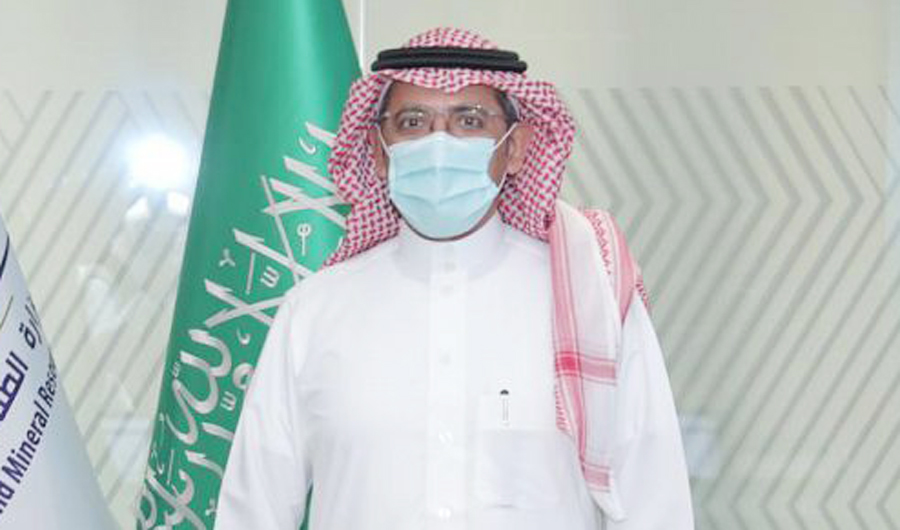
from Saudi Arabia https://ift.tt/3vEJw45
HRC signs MoU to promote human rights in Saudi Arabia
RIYADH: The Human Rights Commission (HRC) on Monday signed a memorandum of understanding (MoU) with the Saudi Lawyers’ Association to boost cooperation.
The MoU aims to enhance coordination between the two sides to protect human rights and develop the local legal sector along modern lines within the parameters of the Shariah.
The main focus of the agreement is promoting human rights culture, exchange of information, statistics and reports and increased communication to ensure justice to all.
Saudi Arabia is witnessing a qualitative leap in the field of human rights. The Kingdom’s Vision 2030 program is at the forefront of these reforms intended to focus on humans.
Among over 60 recent decisions made to improve the situation of human rights in the Kingdom, 22 were related to women.
In November 2020, the Kingdom eased the sponsorship system for foreign expat workers, including contract restrictions that gave employers control over the lives of around 10 million migrant workers.
HRC is forging partnerships with local, regional, and international establishments working in the field of human rights.
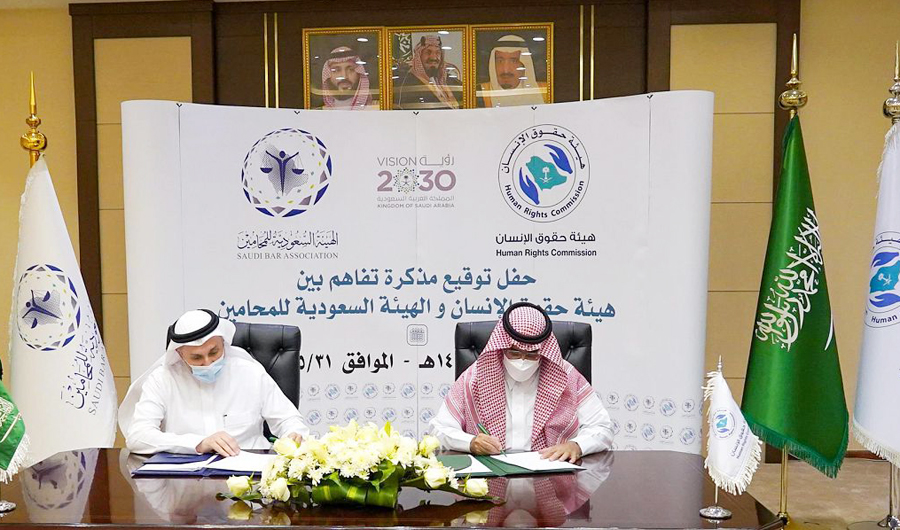
from Saudi Arabia https://ift.tt/3vGysDk
Who’s Who: Mohammed Madani, Director General of Government Expenditure & Projects Efficiency Authority
Mohammed Madani recently joined the Government Expenditure & Projects Efficiency Authority (EXPRO) as director general of enablement, specifically looking after the Spending Efficiency Key Element Program (SEKEP).
Madani’s role involves dealing with government entities to enhance spending efficiency in core operations.
He began his career with Saudi Arabian Airlines as an automated test equipment technician in the avionics section, under the maintenance department. He worked with Saudia from 2004 to 2005.
Madani obtained an MBA specializing in economics and finance from the University of Central Missouri, US, in 2008. He also completed a bachelor’s degree in applied science in computer information systems from the same university in 2007, and an associate degree in electronics and computer technology with honors from DeVry University, US, in 2003.
In 2009, he joined Procter & Gamble as liquids costing manager in the Dammam plant, managing popular product lines including Fairy and Downy. Later, he moved to Jeddah at the company’s Saudi headquarters during 2011 as paper category finance manager, and oversaw two other well-known brands (Pampers and Always).
Before his new role, he served as head of the KSA Finance Excellence Team at Unilever from 2018 to 2020. In 2020, he was appointed personal care regional finance manager.
Madani worked for AMS Baeshen & Co. as head of financial planning and analysis from 2016 to 2018.
In 2014, Madani joined Cristal Global as projects finance manager and oversaw megaprojects worth more than $500 million. Cristal Global was the world’s second largest producer of titanium dioxide.
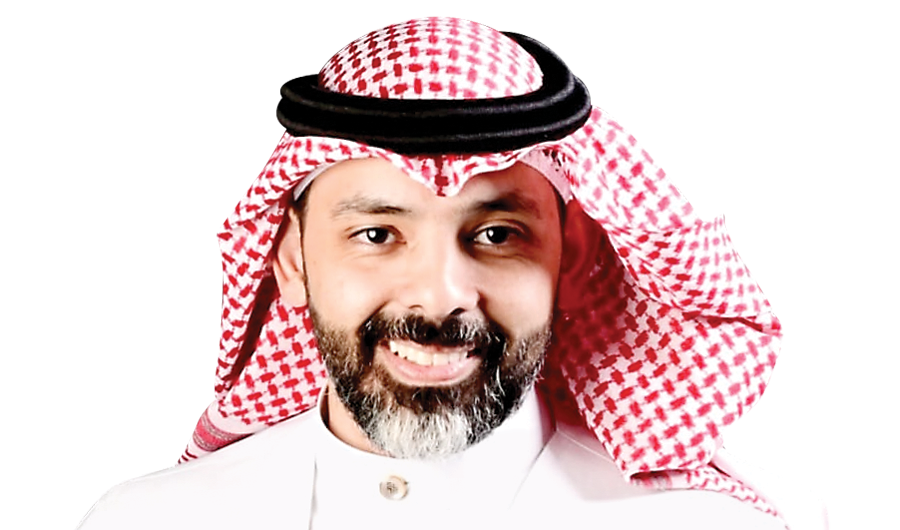
from Saudi Arabia https://ift.tt/3wKIl2Z
Saudi Arabia to launch ‘Riyadh Initiative’ to combat global corruption at UN in Vienna on Thursday
RIYADH: Saudi Arabia is working to launch the “Riyadh Initiative” aimed at establishing a global network of operations to exchange information between anti-corruption agencies.
Mazin bin Ibrahim Al-Kahmous, president of the Oversight and Anti-Corruption Authority (Nazaha), will head the Kingdom’s delegation at the session at the UN headquarters in Geneva on Thursday, Saudi Press Agency reported on Monday.
The Riyadh Initiative has received international support, and the political declaration of the UN General Assembly meeting dedicated to combating corruption welcomed the establishment of the initiative called the Global Network of Anti-Corruption Law Enforcement Authorities (GlobE Network).
Envoys will discuss a number of topics related to the fight against corruption in the presence of Executive Director of the UN Office on Drugs and Crime (UNODC) Ghada Waly and Prince Abdullah bin Khalid bin Sultan, the Kingdom’s ambassador to Austria and permanent representative to the UN and international organizations in Vienna.
Topping the agenda will be the announcement of the Riyadh Initiative Network. The Kingdom worked during its G20 presidency last year to develop and launch the network to strengthen efforts to combat corruption internationally.
The Riyadh Initiative was developed in partnership with G20 countries and international organizations specialized in combating corruption, such as Interpol, the Egmont Group, the Organization for Economic Cooperation and Development, the Financial Action Task Force, the World Bank and the International Monetary Fund.
Al-Kahmous will deliver the Kingdom’s speech, in which he will highlight Saudi Arabia’s efforts to activate its international anti-corruption partnerships.
The main objective of the Riyadh Initiative Network is to develop a rapid and effective tool to combat cross-border corruption crimes.
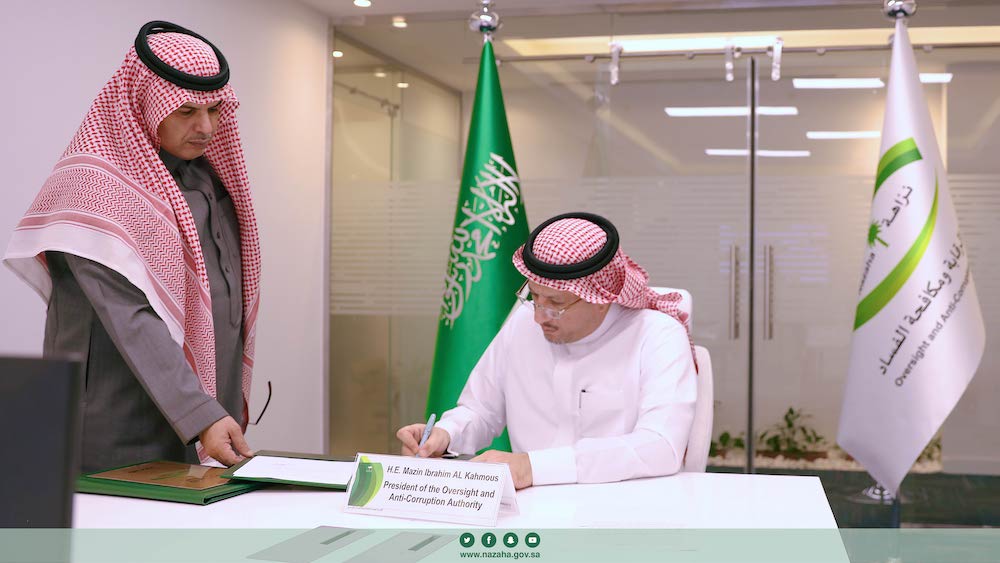
from Saudi Arabia https://ift.tt/2SE8bXP
No quarantine for vaccinated travelers to Saudi Arabia
JEDDAH: Travelers who have been fully vaccinated against the coronavirus disease (COVID-19) do not need to quarantine upon arrival in Saudi Arabia, said the General Authority of Civil Aviation (GACA), but they must have vaccination certificates that have been attested by authorities in their home country.
GACA has set a seven-day quarantine for foreign travelers who have not been vaccinated yet. The approved vaccines are Pfizer-BioNTech, Moderna, Oxford-AstraZeneca, and Johnson & Johnson.
Health officials in the Kingdom have been at great pains to emphasize the safety and efficacy of the jabs, dispelling any speculation around them as the country continues its inoculation drive.
Dr. Abdullah bin Mefarreh Asiri, assistant deputy minister for preventive health, said it was coronavirus that caused myocarditis (inflammation of the heart muscle) and not the vaccine.
He tweeted that cardiac magnetic resonance assessment showed that 60 percent of people with a severe COVID-19 infection showed signs of myocarditis.
He cited a study, published in the National Center for Biotechnology Information, which included 100 patients recently recovered from coronavirus. Cardiac magnetic resonance imaging revealed cardiac involvement in 78 patients and ongoing myocardial inflammation in 60 patients, which was independent of preexisting conditions, severity, overall course of the acute illness, and the time from the original diagnosis.
FASTFACTS
• Saudi Arabia reported 1,245 new COVID-19 cases on Monday.
• The death toll has risen to 7,362 with 15 more virus-related fatalities.
• Makkah is experiencing a surge in the number of cases.
Asiri said that just 89 cases of myocarditis were detected among those who had been vaccinated, following 155 million Pfizer doses being administered.
The spokesman for the Ministry of Health, Dr. Mohammed Al-Abd Al-Aly, insisted that COVID-19 vaccines were safe, effective and necessary for protection. He said that rumors and misinformation about the vaccines had gained a lot of traction, posing a threat to others and hindering herd immunity.
Saudi Arabia on Monday reported 15 more COVID-19-related deaths, taking the death toll to 7,362.
There were 1,245 new cases, increasing the total number of infections to 450,436. There are 9,661 active cases, with 1,438 patients in a critical condition.
Of the newly recorded cases, 428 were in the Makkah region, 313 were in the Riyadh region, 155 were in the Eastern Province, and 99 were in the Madinah region.
The ministry said 1,275 patients had recovered from the disease, increasing this total to 433,431.
Saudi Arabia has so far conducted 19,214,578 PCR tests, with 92,458 carried out in the past 24 hours.
Testing hubs and treatment centers have dealt with hundreds of thousands of people since the outbreak. Taakad centers provide testing for those who show no or mild symptoms, or those who believe they have come into contact with an infected individual.
Tetamman clinics offer treatment and advice to those with virus symptoms such as fever, loss of taste and smell, and breathing difficulties.
Appointments for both services can be made via the ministry’s Sehhaty app.
Saudi Arabia has so far vaccinated 14,146,363 people.
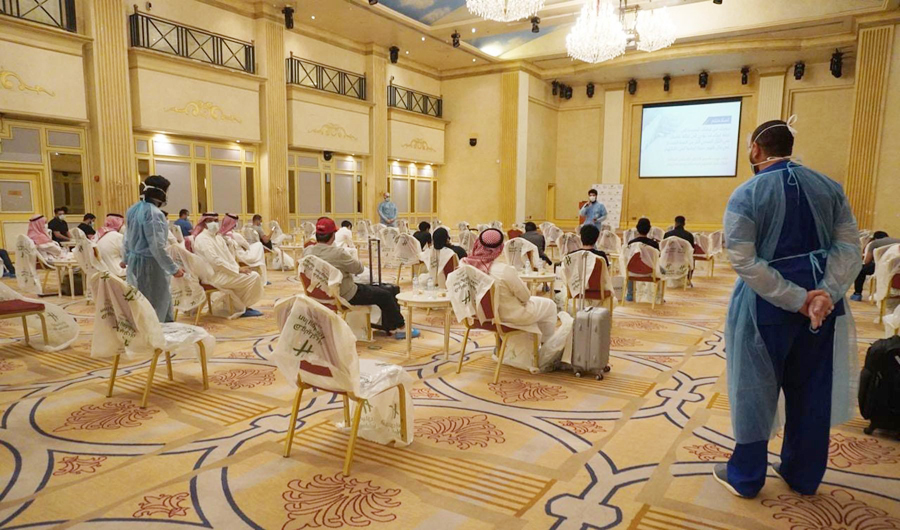
from Saudi Arabia https://ift.tt/3fzjb1I
Malta’s foreign minister holds talks with Saudi counterpart, GCC chief in Riyadh
RIYADH: Saudi Arabia’s Foreign Minister Prince Faisal bin Farhan held talks with his Maltese counterpart Evarist Bartolo in the capital Riyadh on Monday.
During the meeting, they discussed ways of enhancing cooperation and joint coordination to serve the interests of the two countries, the Kingdom’s foreign ministry said.
They also discussed and exchanged views on the most recent regional and international developments.
Bartolo also met with Secretary General of the Gulf Cooperation Council Nayef Al-Hajraf to discuss aspects of strengthening cooperation between the GCC and Malta
They also discussed Gulf-European relations, ways of developing them, issues of common interest and enhancing permanent cooperation for both sides, the GCC said in a statement.
“Al-Hajaf and Bartolo stressed their desire to develop joint cooperation in various fields, stressing the need to strengthen bilateral relations in accordance with the memorandum of understanding signed between the two parties in 2017,” the statment added.
The 2017 agreement focuses on political issues, trade and investment, renewable energy, the environment, research and development.
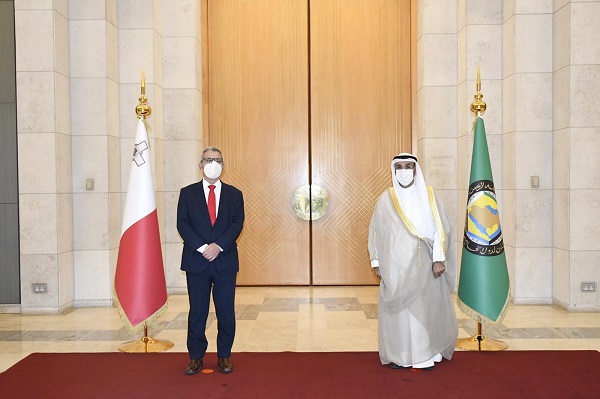
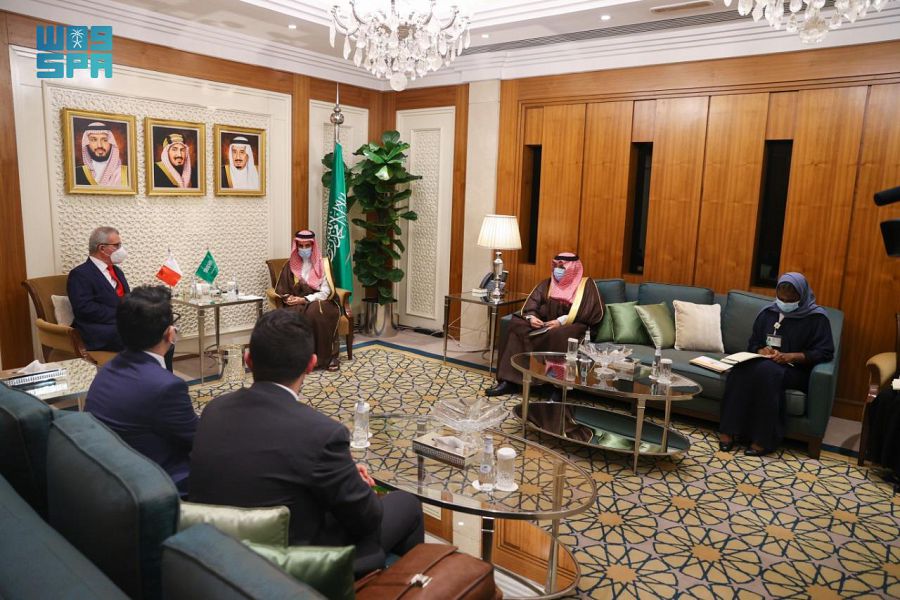
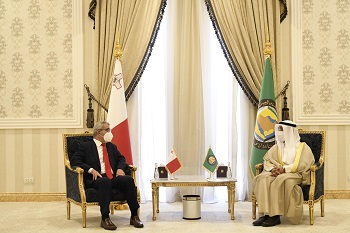
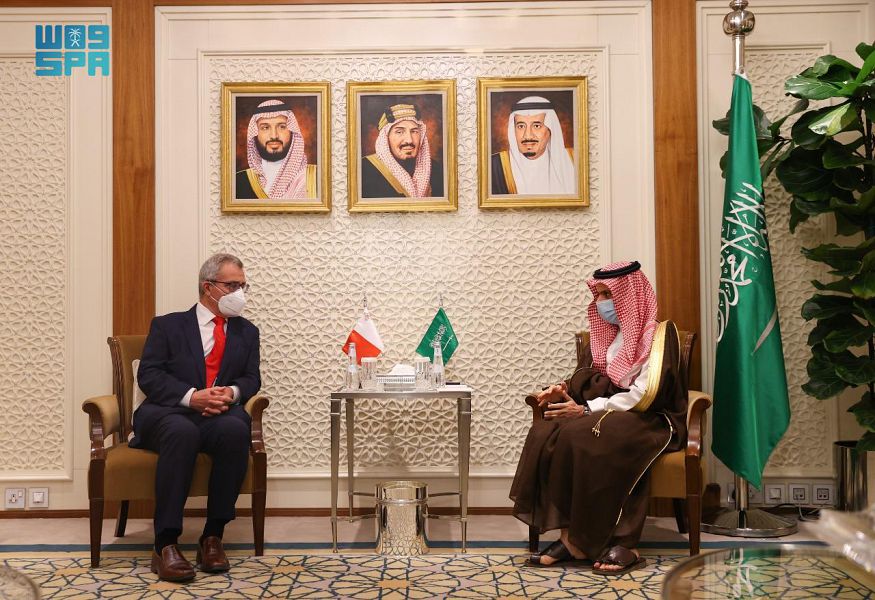
from Saudi Arabia https://ift.tt/3wQJlmv
A good samaritan donates kidney to Saudi boy
MAKKAH: It is no secret that generosity runs deep in Saudi society, even to the point of saving lives.
And organ donation, permissible in Islam, is one of the greatest acts of charity.
In 2017, there were 19,659 dialysis patients in Saudi Arabia, most aged between 26 and 60, with only 1 percent under 15 years of age, according to the Saudi Journal of Kidney Diseases and Transplantation.
Earlier this year, Abdulrahman Al-Dosri, a young, healthy Saudi in his early 30s living in Al-Khurma province, northeast of Taif, decided to donate a kidney to a child living thousands of miles away who was suffering from advanced renal disease.
Ten-year-old Faisal Al-Subaie had been undergoing dialysis treatment since December 2018, but as his illness worsened, his family grew increasingly desperate.
The boy’s ordeal showed no sign of ending — until Al-Dosri’s selfless act of generosity gave him another chance at life.
Speaking to Arab News, Al-Dosri said that he has been an avid reader in the humanities and social sciences since his middle school days.

Abdulrahman Al-Dosri, donor, and Faisal Al-Subaie, recipient.
Over time, this passion for reading began to enlighten him, opening his eyes to different prospects in life and his role in it. Soon he found himself volunteering in different fields.
Al-Dosri said that his wide reading helped to encourage his humanitarian efforts — already a cultural pillar in the Kingdom — pushing him to interpret what he had read and embody it in his life.
From a young age, he used to tell himself that “humans should be humans and not be parsimonious when it comes to helping others,” recalling the verse of the Qur’an that says: “Whoever saves a life, it will be as if they saved all of humanity.”
In Saudi Arabia, organ transplant operations began over three decades ago, with the first a kidney transplant from a live donor.
Organ donations from the deceased began in 1985. Since then there have been many medical advances, all of which offered a sense of security to many citizens who are able, healthy and willing to make the sacrifice, understand the weight it carries, and create a lasting connection between donor and recipient.
I registered in the organ donation program after learning that King Salman and Crown Prince Mohammed bin Salman had done so.
Abdulrahman Al-Dosri
The story behind organ donation is often simple but inspiring.
Al-Dosri found himself moved by the story of the child who needed a kidney, which was relayed over social media. He was touched when he saw images of the child’s suffering. So, he took a picture of Al-Subaie on his mobile phone, and began considering donating a kidney to end the boy’s suffering and that of his parents.
Al-Subaie’s parents had moved to Riyadh to be close to their son, who had been staying in one of the capital’s hospitals in order to follow up on his case.
Al-Dosri searched for the child until he was able to reach the parents. They were in tears after hearing of his unparalleled humanitarian gesture, and full of praise for a young man willing to give up one of his kidneys to save their child.
FASTFACTS
• In Saudi Arabia, organ transplant operations began over three decades ago, with the first a kidney transplant from a live donor.
• Organ donations from the deceased began in 1985.
• In 2017, there were 19,659 dialysis patients in Saudi Arabia, most aged between 26 and 60, with only 1 percent under 15 years of age, according to the Saudi Journal of Kidney Diseases and Transplantation.
Transplants depend on blood groups, donor availability, urgency and immunological matching.
Al-Dosri fulfilled all the criteria, and preparations began for what would be one of thousands of operations conducted in the Kingdom by public-spirited medical specialists.
The operation was performed earlier this year and was successful. The child was able to return to his normal life, and both patient and the donor fully recovered, creating a lifelong bond.
Earlier this month, the generous donor was awarded the King Abdul Aziz Medal for his humanitarian act.
Al-Dosri said that he registered in the organ donation program after learning that King Salman and Crown Prince Mohammed bin Salman had done so — an announcement that led to a wave of registrations in the Kingdom.
The program is a key part of the significant and important humanitarian work giving the sick, whose lives depend on transplants, life and hope.
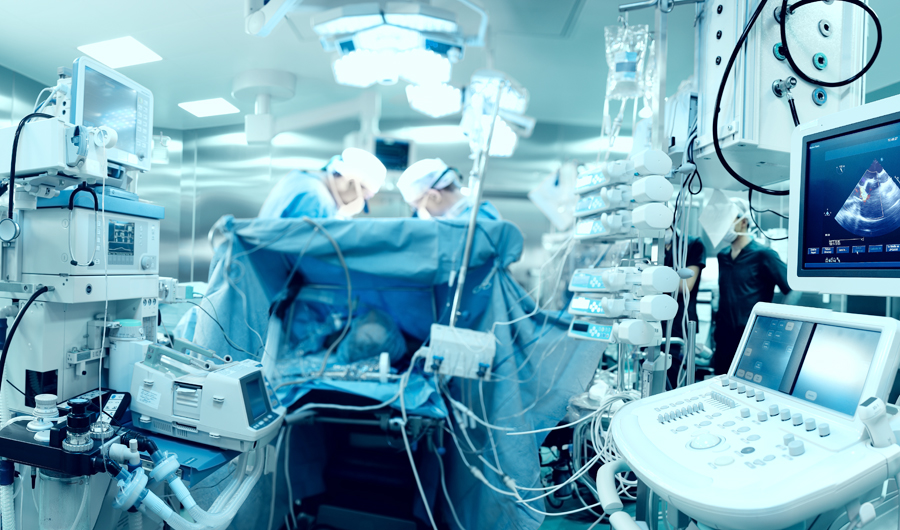
from Saudi Arabia https://ift.tt/3c7AIMi
Indian envoy, expats hail ‘crucial’ Saudi aid in virus battle
RIYADH: India’s ambassador to Saudi Arabia and expats living in the Kingdom have praised Saudi aid efforts to help their country in the fight against the coronavirus disease (COVID-19).
“As strategic partners, India and Saudi Arabia have always stood by each other. During the COVID-19 crisis in India, there has been tremendous support from the Kingdom, both from the government and various businesses,” Ausaf Sayeed told Arab News.
Saudi Arabia on Sunday shipped another consignment of liquid medical oxygen to India to help the country deal with a shortage amid a deadly second wave of the pandemic.
“At the government-to-government level, (Saudi) Aramco recently announced a shipment of three containers with 60 metric tons of oxygen, with more likely in the coming months,” he added.
“Before this, several companies and community organizations sent shipments through B2B efforts, taking the total oxygen sent from the Kingdom to 300 metric tons, besides more than 6,000 oxygen cylinders and several oxygen concentrators.”
Sayeed expressed his gratitude to the Saudi leadership, King Salman and Crown Prince Mohammed bin Salman, and the authorities and “all others who have been helpful in facilitating all approvals and support for quick shipment of the relief materials.”
This expression of solidarity is “extremely important,” he added, highlighting the growing ties between the two countries, especially since the elevation of the relationship to a strategic partnership, which covers all dimensions including political, economic, defense, security and culture.
Cooperation in the health sector has also been an important aspect of this partnership, which was also reflected in India exporting various pharmaceutical products last year, and COVID-19 vaccines earlier this year, said the ambassador.
HIGHLIGHTS
• Saudi Arabia on Sunday shipped another consignment of liquid medical oxygen to India.
• India has struggled with a major outbreak of COVID-19, which is now starting to ease.
India has struggled with a major outbreak of COVID-19, which is now starting to ease.
Praising the Saudi help, Gayas Ahmed Sattar, an Indian doctor who has lived in the Kingdom for over two decades and is currently medical director at Abad specialized clinics in Riyadh, told Arab News: “Timely help is God’s help. In this time of crisis, it’s a story of inspiration and hope where two nations help each other.”
He said that the Kingdom has always been a leading participant in humanitarian causes all over the world.
Sattar added that COVID-19 management inside the Kingdom has been “excellent,” both for citizens and expatriates, and thanked the authorities for their support and management of the crisis.
“From my personal point of view, some of my close friends and relatives have immensely benefited by the timely help from the Kingdom. It helped them get the right treatment at the right time, which surely helped save many lives,” he said.
Dr. Shaikh Abdullah, an Indian doctor working in Riyadh with King Abdullah Specialized Children’s Hospital, National Guard, praised the “good gesture” on the Kingdom’s part, which has shown generosity and solidarity with India in a time of crisis.
“As the second wave hits India hard, the country has faced a shortage of many essential medical supplies to battle the deadly virus, including oxygen, which is a very important tool in curing COVID-19 patients,” he told Arab News.
“Saudi Arabia has been one of the first countries to act on this and help India, supplying it earlier with oxygen, and now once more in its time of dire need.”
Abdullah, who has been involved in the treatment of patients battling the virus for around a year, said that once the disease progresses and a patient’s condition worsens, one of the most important components of treatment is oxygen, hence a shortage of oxygen spells disaster for the patients.
He added that many of his relatives who had no access to oxygen early in the second wave in India now able to get help — “all thanks to the kind gestures of the Kingdom and other countries.”
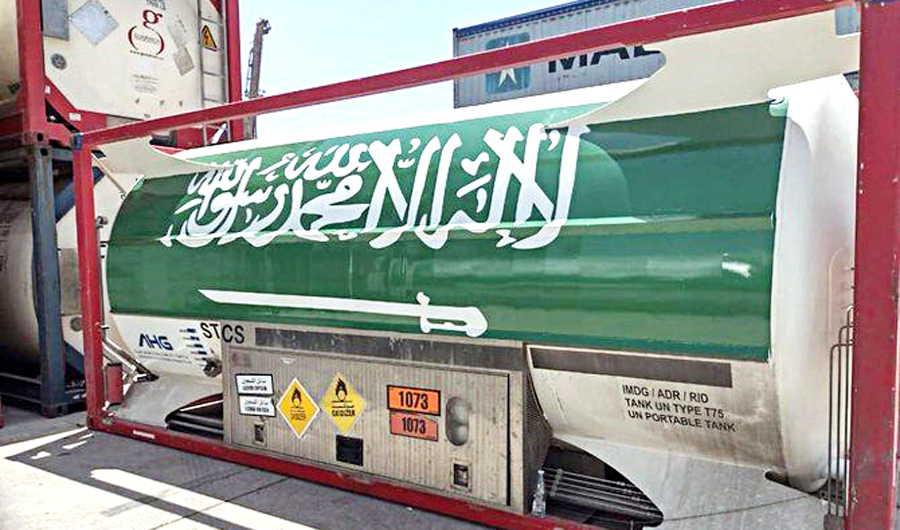
from Saudi Arabia https://ift.tt/3uFNgkt
Rajasthan Eases Lockdown Restrictions Amid Decline In Covid Cases
from NDTV News - Special https://ift.tt/2SHlgj5
Rajasthan Wasted 11.5 Lakh Doses Of COVID-19 Vaccines: Union Minister
from NDTV News - India-news https://ift.tt/3ySRsjZ
Live: Covid Strain 1st Detected In India Named "Delta Variant", Says WHO
from NDTV News - India-news https://ift.tt/3uCZ7ja
Jharkhand Chief Minister Writes To PM Modi Seeking Free Covid Vaccines
from NDTV News - India-news https://ift.tt/2TqZwIx
What Happens When Khushi Kapoor And Anjini Dhawan Hang Out Together
from NDTV News - Special https://ift.tt/3uvGcqF
"Tarnished India's Image": Maharashtra Minister On Bodies In Rivers
from NDTV News - India-news https://ift.tt/3fU199n
Bengal Chief Secretary, Ordered To Move To Delhi, Unlikely To Go: Sources
from NDTV News - India-news https://ift.tt/3uB2uqW
PM Modi's Praise For Farmers For "Record Output" Amid Pandemic
from NDTV News - India-news https://ift.tt/3c5n0t8
Bengal Chief Secretary, Ordered To Move To Delhi, Unlikely To Go: Sources
from NDTV News - Special https://ift.tt/3yICr4i
Rs 10 Lakh Aid For Families Of Journalists Who Died Due To Covid In UP
from NDTV News - Special https://ift.tt/3vD9THp
Tarzan Actor Joe Lara Among 7 Presumed Dead In US Plane Crash
from NDTV News - Special https://ift.tt/2TjF6kH
India Fought First Wave Courageously, Will Be Victorious Again: PM Modi
from NDTV News - India-news https://ift.tt/3fQz96w
Bengal Yet To Relieve Chief Secretary After Centre's Move: Report
from NDTV News - India-news https://ift.tt/3yICr4i
Red Sea Development Co. inaugurates first 100% renewable bottled water plant in Saudi Arabia
JEDDAH: The Red Sea Development Co. (TRSDC) inaugurated the first desalination plant using solar and wind energy in the Kingdom as part of efforts to preserve the environment by limiting carbon emissions.
Ahmed Ghazi Darwish, chief of staff at TRSDC, said that the project was launched in collaboration with Source Global, PBC, which specializes in renewable drinking water.
He added that the solar-powered desalination plant will be the largest of its kind in the world, with a production capacity of 2 million 330 milliliter water bottles per year. The production of 300,000 bottles annually will begin in the coming years.
As part of the sustainable model, reusable bottles will be used to help achieve carbon neutrality.
During the first phase of the plant’s construction, experts selected an ideal plot of land, and 100 hydrogen panels were placed after a virtual survey was conducted by specialists according to the plant’s specifications and requirements.
FASTFACT
The solar-powered desalination plant will be the largest of its kind in the world, with a production capacity of 2 million 330 milliliter water bottles per year. The production of 300,000 bottles annually will begin in the coming years.
In addition, a total of 1,200 hydrogen panels will be added during the second and third phases, and the plant will be provided with necessary components and reusable bottles by companies operating in the Kingdom.
Darwish said that the desalination technology used by TRSDC will fully depend on solar energy to raise condensation levels in the hydrogen panels in order to produce high-quality fresh water.
He added that the performance of the panels will be monitored through a smart application that will show the volume of water produced, the environmental impact of the panels and maintenance alerts.
The desalination technology is wholly sourced from Saudi companies, and conforms to local and international water quality standards, including those of the GCC Standardization Organization, World Health Organization, Saudi Food and Drug Authority, and Saudi Ministry of Environment, Water and Agriculture.
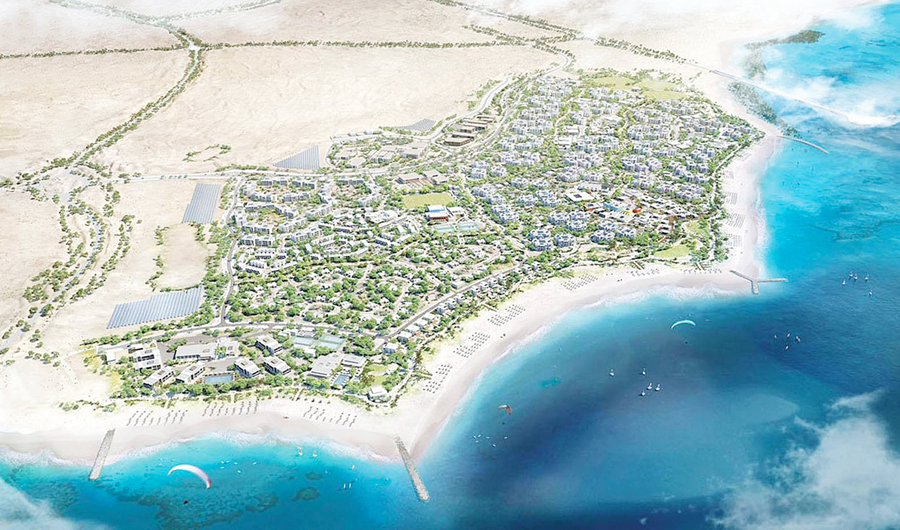
from Saudi Arabia https://ift.tt/3uvZZ9b
COVID-19 cases fall below 1,000 mark in Saudi Arabia
JEDDAH: Fewer than 1,000 new coronavirus cases have been reported in Saudi Arabia for the first time in almost two weeks, but a rise in cases needing intensive care remains a major concern for health officials.
On Sunday, the Ministry of Health announced 907 new cases of COVID-19, raising the overall total to 449,191. The last time cases fell below the 1,000 mark was on May 16 when 886 cases were recorded.
The region with the highest number of cases is Riyadh at 258, followed by Makkah with 232 and Eastern Province with 139. The region with the lowest cases is Jouf with three.
Health Ministry spokesman Dr. Mohammed Al-Abd Al-Aly told a media conference on Saturday that the number of cases has been fluctuating, and urged people to follow regulations.
“Daily cases have been fluctuating lately, and we hope the numbers will decline because of people, first, receiving their COVID-19 vaccines and, second, adhering to protocols by wearing masks, social distancing, washing their hands and avoiding social gatherings.”
INNUMBERS
449,191 Total cases
432,138 Recoveries
7,347 Deaths
The ministry said that 1,201 patients have recovered, reducing the number of active cases to below 10,000. There are currently 9,706 active cases.
However, the number of critical cases has increased by 14 in the past 24 hours, raising the total to 1,408.
The daily number of COVID-19-related deaths reached 13 in the past 24 hours, lifting the national mortality figure to 7,347.
Meanwhile, over 14 million vaccines have been administered at a rate of 40.2 doses per 100 people.
The ministry spokesman said that there were few exemptions from taking the vaccine.
“Those who have vaccine-associated hypersensitivity from the components of the vaccines are exempted from taking the second dose,” he said, adding that such cases are rare and everyone still needs to take their first dose.
“The vaccine is safe and suitable for everyone. Even people with illnesses need to take their first dose.”
A total of 76,003 PCR tests were conducted in the past 24 hours.
Al-Aly said that testing is carried out only on those with COVID-19 symptoms.
The Ministry of Interior said that people must follow the protocols and regulations to keep COVID-19 under control and prevent any further spread of the virus.
On Sunday, the Ministry of Islamic Affairs, Dawah and Guidance reopened six mosques that had been temporarily closed for cleaning, raising the number of sanitized mosques to 1,425 in 113 days.
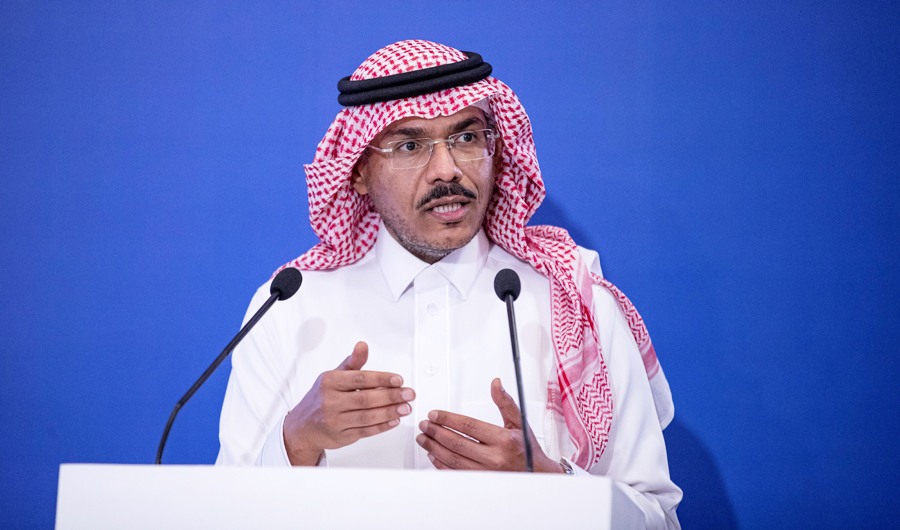
from Saudi Arabia https://ift.tt/3fzrlXS
Saudi minister receives new UAE ambassador
Saudi Minister of State for Foreign Affairs Adel Al-Jubeir on Sunday received the recently appointed UAE ambassador to Saudi Arabia, Sheikh Nahyan bin Saif Al-Nahyan, at the ministry’s headquarters in Riyadh.
Al-Jubeir wished the ambassador success in his new assignments.
The meeting was attended by Mashari bin Ali bin Nahit, the undersecretary for political affairs at the Ministry of Foreign Affairs.
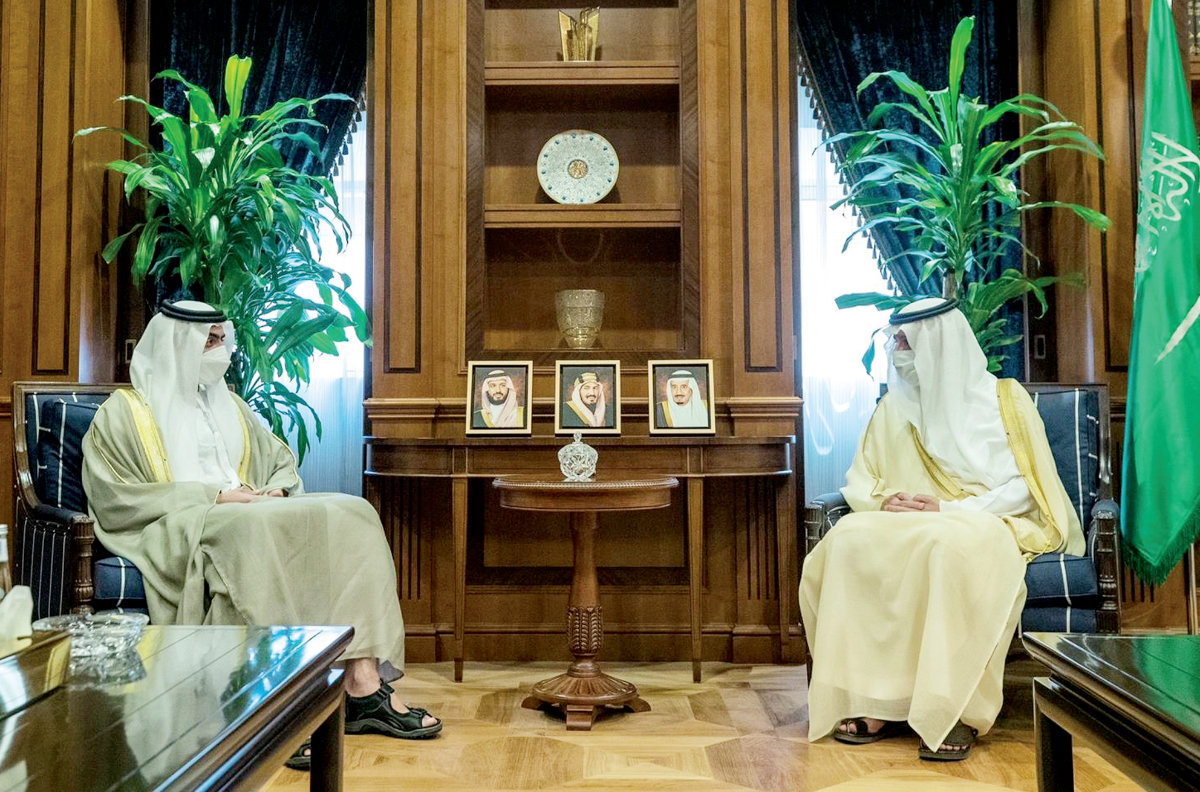
from Saudi Arabia https://ift.tt/3vAAMMo
Deal signed to measure AlUla’s development
RIYADH: The Royal Commission for AlUla (RCU) on Sunday signed a memorandum of cooperation with the General Authority for Statistics (GASTAT) to measure the governorate’s economic and social development indicators, the Saudi Press Agency reported.
The memorandum includes measuring population growth, the number of visitors, income and spending rates, AlUla’s cultural, sustainability, tourism and educational indicators, as well as other population-related and development indicators and statistics.
It was signed by the RCU’s CEO, Amr Al-Madani, and the head of GASTAT, Dr. Konrad Pesendorfer.
“The signing of the memorandum comes as part of the efforts aimed at achieving AlUla’s vision, and the objectives of the Kingdom’s Vision 2030, by relying on sustainable development in the governorate and achieving the ambitions in terms of the quality of life for residents and visitors,” Al-Madani said.
The data collection and analysis, which would be conducted in accordance with the memorandum, would support the decision-making process within the commission and improve the measurement of the impact of its projects and programs, he added.
Pesendorfer stressed the importance of providing accurate data and statistical indicators when developing sustainable development plans in all fields, as they would provide policy and decision-makers with a “real, detailed and comprehensive” picture.
“This would directly contribute to identifying the required objectives and determining the measures and mechanisms required for its implementation with the highest level of efficiency and proficiency,” he added.
The RCU is seeking to measure the governorate’s development rates and achieve the objectives of its vision in terms of cultural, economic and heritage development for AlUla and its residents, thereby enriching the visitor experience.
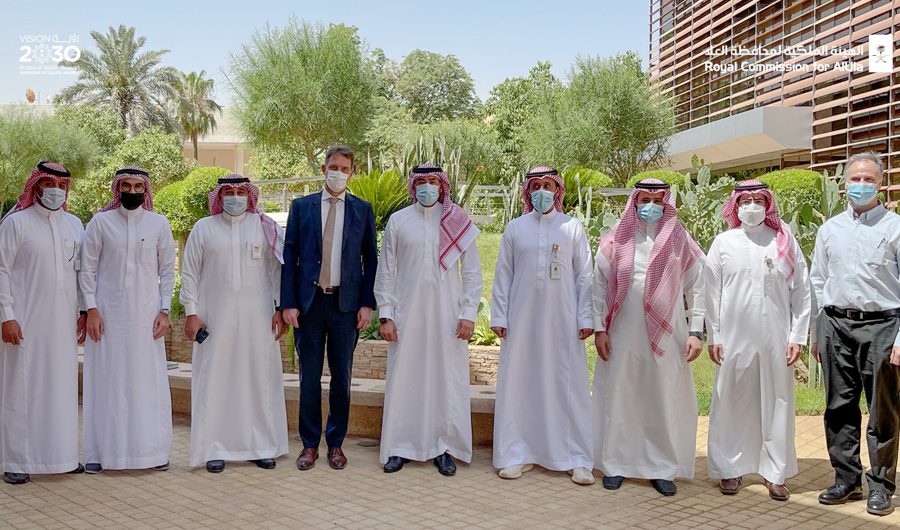
from Saudi Arabia https://ift.tt/3fWL2Yz
Saudi Arabia records 28,862 COVID-19 violations
RIYADH: Saudi authorities continued their monitoring campaigns to ensure compliance with the precautionary measures imposed to stem the spread of the coronavirus disease (COVID-19).
They recorded 28,862 violations of the regulations in one week, according to recent statistics from the Ministry of Interior.
The statistics indicated that the region of Riyadh recorded the highest number with 9,897 violations, followed by Makkah (5,939), the Eastern Province (3,326), Qassim (2,320), Madinah (1,732), Jouf (1,513), the Northern Borders (753), Hail (697), Tabuk (689), Jazan (659), Baha (530), Asir (505), and Najran (302).
Meanwhile, health clinics set up by the Ministry of Health as testing hubs or treatment centers have helped hundreds of thousands of people around the Kingdom since the pandemic began.
Among those testing hubs are Taakad (make sure) centers and Tetamman (rest assured) clinics. Appointments to either service can be made through the ministry’s Sehhaty app.
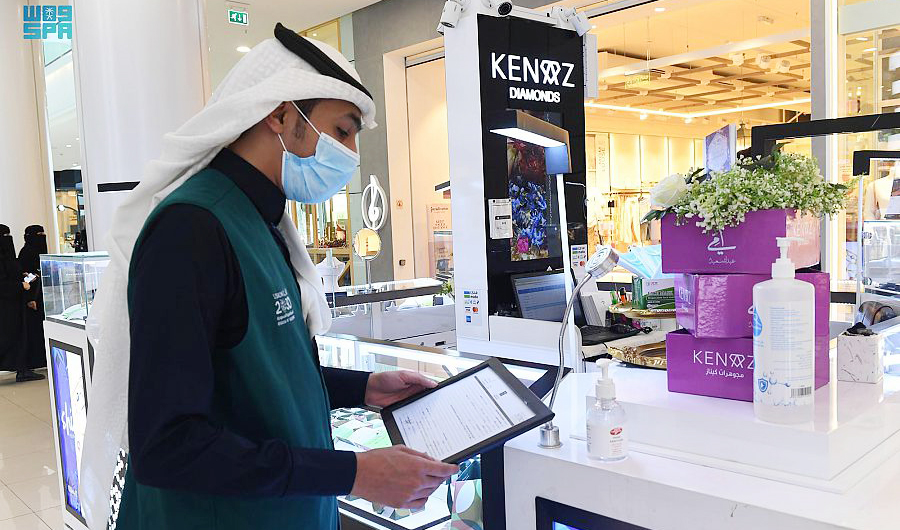
from Saudi Arabia https://ift.tt/34xOV0U
Saudi municipalities step up COVID-19 inspection tours
JEDDAH: Municipalities throughout the Kingdom have increased their efforts to monitor compliance with anti-coronavirus measures in order to protect the public amid the pandemic, the Saudi Press Agency reported.
Tabuk municipality carried out 9,979 inspection tours in one week in partnership with relevant sectors across food facilities and shops.
During the tours, 59 facilities were shut down and 138 violations were detected.
Field teams also detected five violations of instructions issued by authorities as part of their efforts to address the pandemic.
The municipality said inspection teams were ensuring facilities’ commitment to COVID-19 health and safety measures.
It emphasized the importance of combining efforts and for facilities to show their cooperation by following all precautionary and preventive measures.
The Eastern Province municipality carried out 1,284 inspection tours in a single day across malls, commercial centers and stores.
During the tours, five commercial facilities were closed, while 198 violators were issued with penalties for ignoring health measures which led to overcrowding and failure to use the Tawakkalna app.
The municipality said it had received 35 reports of violations and urged all commercial facilities to respect regulations to ensure public safety and prevent the virus from spreading.
Authorities urged members of the community to do their part in maintaining public health by reporting any breaches to the 940 call center number or through the Balady app.
Makkah municipality carried out 173 monitoring tours across commercial facilities to ensure they were following anti-coronavirus measures.
The general directorate of the holy sites carried out a field monitoring campaign to prevent unauthorized activities across parks and gardens, with actions being taken against those responsible.
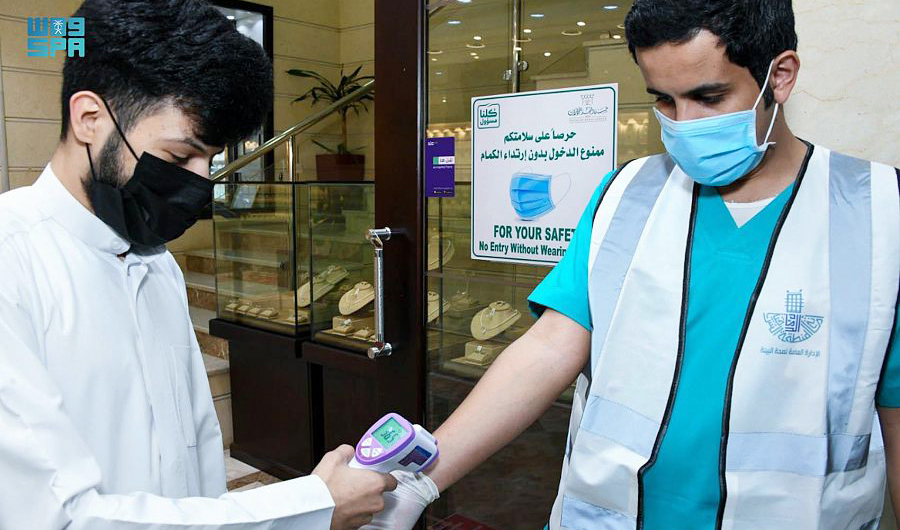
from Saudi Arabia https://ift.tt/3i5yUHi
Who’s Who: Norah Al-Tuwaim, engineer at Saudi Space Commission
The Saudi Press Agency met with Norah Al-Tuwaim, a leader in the field of satellite engineering.
Al-Tuwaim was previously head of the optics team at the National Satellite Technology Center of King Abdul Aziz City for Science and Technology (KACST), and a member of the team that developed the SaudiSat 5A/5B satellites.
She launched her career in 2012 with the cooperative training program — one of the graduation requirements at Prince Sultan University — as a trainee at the National Satellite Technology Center.
After graduating with first-class honors in 2013, Al-Tuwaim joined the center’s staff and took part in the SaudiSat 5A/5B project.
During her work at KACST, she helped to develop national capabilities and was granted a scholarship for higher education in the US in 2015.
She pursued her master’s degree at Northwestern University’s McCormick School of Engineering. In 2017, she graduated from the university, which was one of the top 10 universities in the US.
Al-Tuwaim was an enterprise architect in the Strategy and Planning Division in 2019 after she moved to the information, communications and technology sector, where she worked at solutions by STC, one of the leading IT services providers in Saudi Arabia.
She recently joined the Saudi Space Commission as part of the strategic planning department.
Al-Tuwaim said: “The Kingdom spared no efforts in supporting its citizens. It also boosted this support with the launching of the Vision 2030, which focused on shedding light on Saudi women and empowering them in all fields such as the labor market and particularly in the field of education that represents the foundation of the nation’s renaissance.”
“It has prepared work environments for the entry of women in all fields and positions, providing them with limitless ambitions and empowering them by raising their awareness regarding their legal and civil rights.”
In a message to the nation’s young women, Al-Tuwaim said: “You are the shapers of the future and are capable of preserving the nation and its gains. Knowledge and sincere work are the best things we can present in light of our constant quest to return the favor to the homeland. This is done through the achievement of the ultimate goal of advancing our society.”
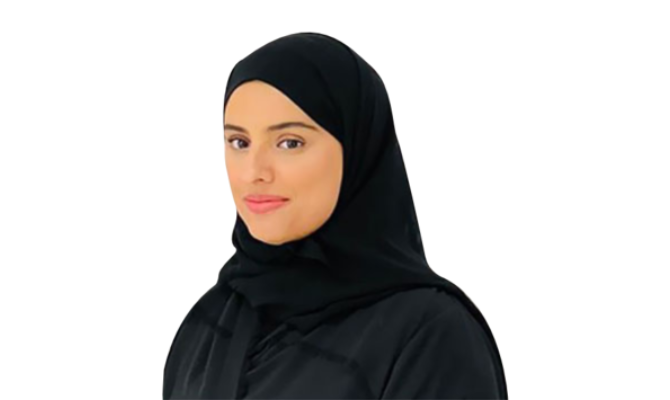
from Saudi Arabia https://ift.tt/3fASNEF
Saudi Arabia’s contribution to UNHCR’s programs has provided assistance for refugees
JEDDAH: The number of displaced people has nearly doubled in the past decade, from 41 million to 80 million, and with this ever-rising demand, support is always needed.
Halfway through the year, the world’s most vulnerable faced an even greater challenge with the onset of the COVID-19 pandemic, increasing their already stressful displacement, making it more difficult to find jobs and protect themselves and families from the coronavirus and other risks.
Appeals for greater global solidarity to confront the mounting crisis have not fallen on deaf ears. Informed by Islamic teachings and culture, Saudi Arabia has played a historic role in helping those in need — not only domestically but externally — by partnering with global initiatives and relevant bodies to provide assistance.
The regional representative of the United Nations High Commission for Refugees to the countries of the Gulf Cooperation Council, Khaled Khalifa, told Arab News that through innovative solutions, and collaborative and unified efforts with international and regional partners, the situation could be improved but “we can’t do it alone.”
“The Saudi government is a strategic partner to the UNHCR. We’re hosted in Saudi Arabia, we’ve had a regional office for the last 30 years that covers the six GCC countries,” Khalifa said. “Contributions from the Saudi government have exceeded $300 million during the last 10 years.”
Saudi Arabia’s support for refugees goes back decades. It has been a key donor to refugee relief programs, supporting UNHCR programs and responding to emergencies while helping development programs and initiatives over the long run. More than $300 million has been donated over the span of 10 years and with the help of the King Salman Humanitarian Aid and Relief Center (KSRelief), agencies were able to provide assistance and provisions.
Other important contributors include the Saudi Fund for Development, which has donated more than $65 million since the fund’s establishment in 2010, as well as the Ministry of Foreign Affairs and the Ministry of Interior.
According to the UNHCR, as of late 2020 there were more than 80 million refugees and internally displaced people (IDPs) around the world: 45.7 million IDPs, 26.3 million refugees, 4.2 million asylum seekers, as well as 3.6 million Venezuelans displaced abroad. That number is rising due to internal conflicts.
Contributions from the Saudi government have exceeded $300 million during the last ten years.
Khaled Khalifa, The regional representative of the United Nations High Commission for Refugees to the GCC countries.
“We cannot respond alone to the challenges associated with the increasing number of displaced people worldwide, which amounts to 1 percent of the global population. I appeal to partners from the public and private sector for their support,” Khalifa said. “We need as much support as we can get to respond to the huge caseloads we have and attend to the needs of the displaced. We need innovative solutions more than ever.”
With the help of NGOs, the public and private sector, more than 17,000 of the UNHCR’s aid workers can provide assistance to beneficiaries quickly, improving the accuracy of the data collected and managing aid recipients’ information. But with the pressure created by the continuous rise in the number of refugees and displaced people, the onset of the pandemic added to the challenge.
The fate of refugees and displaced people is hanging by a thread as their health continues to be the subject of discussion and close observation a year after the start of the COVID-19 pandemic, which has infected more than 170 million people worldwide and caused more than 3.5 million deaths.
On average, and due to the protracted nature of displacement, people spend 17 to 25 years in displacement. Some refugees have been displaced for more than four decades; there are Afghan refugees living in Pakistan and Iran, Palestinian refugees in Syria, Jordan, Lebanon and the occupied territory, Somali refugees in Kenya. The majority of refugees are found in developing countries.
A total of 86 percent of refugees and IDPs are hosted in developing countries, 67 percent of which originate from just five countries, with Syrians topping the list with 6.6 million.

In many countries around the world children cannot access education ‘if they are not legal residents.’ (Reuters)
As the Syrian conflict enters its 11th year, by 2015 Saudi Arabia had received more than 2.5 million Syrians. As one of the largest providers of aid to the Syrian people and to ensure their dignity and safety, the Kingdom does not recognize them as refugees. Syrians in the Kingdom have been given legal residency status, free healthcare, and they attend schools and universities and participate in the labor market.
More than 100,000 Syrian students have been accepted into the public school system. This was mandated by a royal decree in 2012 that instructed public schools to accept them.
“Despite the importance of education, in many countries around the world children cannot access education if they are not legal residents. Many of the children under our mandate are separated or unaccompanied minors. While we do our best to attend to their needs, including providing them with psychosocial support, it is not enough. They need access to education and psychosocial support and more. Education is a right, and at times it is a life-saving metric,” Khalifa said.
One of the UNHCR’s biggest successes is its Refugee Zakat Fund, and though Khalifa has had more than 20 years of experience in relief and development, he has led the agency’s Islamic philanthropy activities globally.
Zakat, a form of charity or tax collected from Muslims whose wealth is at or above a certain threshold, are called to donate a portion of that wealth, taken from specific sources such as savings, stocks and other assets. The Refugee Zakat Fund goes to support the UNHCR’s cash assistance program: 100 percent of the notations are provided to refugee families covering basic needs that include food, shelter, water and medicine.
“If you pay a thousand dollars, for example, we will pay 100 dollars to ensure the amount is fully received. This is an opportunity for zakat donors to maximize the impact of their contributions. As far as I know, this is the only program where the United Nations partners with individual donors worldwide and covers the overhead fees in order to maximize the impact of the program,” Khalifa said.
According to Khalifa, more than 1 million beneficiaries in eight countries have benefitted from donations in 2019.
In 2020, it increased by 12.5 percent, benefitting 2.1 million refugees and IDPs in need of assistance in 13 countries.
“Financial assistance ‘cash distribution’ is the best way to protect the dignity of refugees and the displaced by allowing them to decide their own needs, and who better to do so than them. For some it may be food, for others it may be an emergency surgery, or school fees. Distributing cash to people protects their dignity and at the same time generates movement in the local market; it is an immediate way of making a difference,” Khalifa said.
“Thanks to donations and contributions we see a real difference in people’s lives, and success stories from time to time. However, until many countries including Syria, Yemen, Afghanistan reach a peaceful state and until the root causes are addressed, we will continue to see refugees struggle. There is hope but it will take time,” he said.
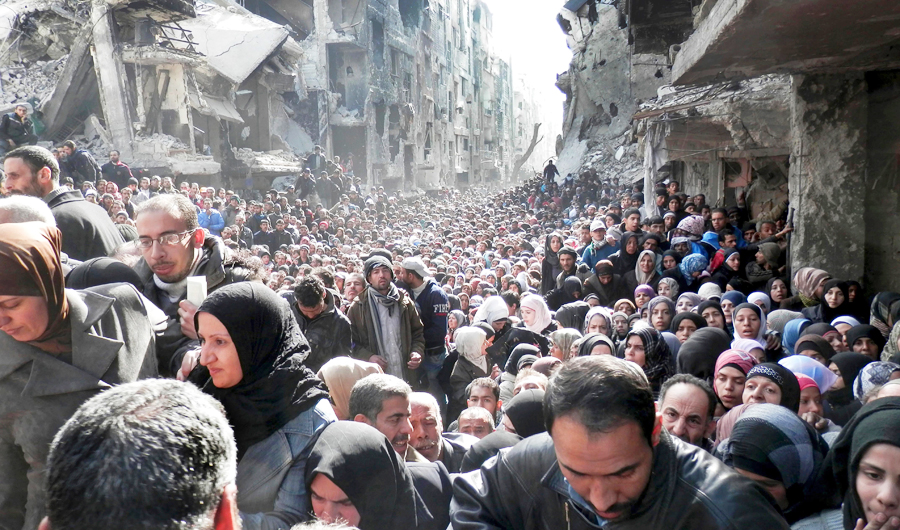
from Saudi Arabia https://ift.tt/3i5Qrz5
Israel's Netanyahu Could Lose PM Job As Rivals Move To Unseat Him
from NDTV News - Special https://ift.tt/3vDUIOa
Rs 10 Lakh Aid For Families Of Journalists Who Died Due To Covid In UP
from NDTV News - India-news https://ift.tt/3vD9THp
Scores Of Children Kidnapped From Islamic Seminary In Nigeria: Officials
from NDTV News - Special https://ift.tt/3wDJadY
Delhi Reports Under 1,000 Covid Cases Again, Deaths Below 100
from NDTV News - India-news https://ift.tt/3yP0U82
Massive Fire Breaks Out In Forest At J&K's Udhampur
from NDTV News - India-news https://ift.tt/3p8hUSy
UAE Extends Suspension On Flights From India Till June 30
from NDTV News - Special https://ift.tt/3vD2aJt
Couple, 3-Year-Old Drown, Driver Missing After Boat Capsizes In Gujarat
from NDTV News - India-news https://ift.tt/2Tozndr
1.65 Lakh New Covid Cases In India, Positivity Rate Below 10% For 6th Day
from NDTV News - India-news https://ift.tt/3yIZKex
Hospitals Can't Offer Vaccine Packages With Hotels: Centre To States
from NDTV News - Special https://ift.tt/34IJ9K5
1 Dead, 4 Taken To Hospital After Shooting Near Toronto
from NDTV News - Special https://ift.tt/34xT3hg
Chelsea Shatter Man City's Treble Hopes To Win 2nd Champions League Title
from NDTV News - Special https://ift.tt/2R2yIgW
1.65 Lakh New Covid Cases In India, Positivity Rate Below 10% For 6th Day
from NDTV News - Special https://ift.tt/3yIZKex
Thousands Protest In Brazil Against President Bolsonaro's Covid Response
from NDTV News - Special https://ift.tt/3vz5w0j
Ratio Of Registrations On CoWIN Portal To Doses Improved: Top Official
from NDTV News - India-news https://ift.tt/3yH68CO
Hospitals Can't Offer Vaccine Packages With Hotels: Centre To States
from NDTV News - India-news https://ift.tt/34IJ9K5
Scientists Conduct Aerial Survey Of Glaciers In Uttarakhand's Chamoli
from NDTV News - India-news https://ift.tt/34s5Qlo
Oil Leak Around Cyclone-Affected Barge Off Palghar Coast In Maharashtra
from NDTV News - India-news https://ift.tt/3fwinKU
Unfair To Call Kumbh Mela Covid "Super-Spreader", Says Top Official
from NDTV News - Special https://ift.tt/3wHdJQ3
Unfair To Call Kumbh Mela Covid "Super-Spreader", Says Top Official
from NDTV News - India-news https://ift.tt/3wHdJQ3
Saudi air defenses intercept Houthi drone aimed at Khamis Mushait
RIYADH: Coalition air defenses intercepted an explosives-laden drone launched by Yemen's notorious Houthi militia toward Saudi Arabia late on Saturday, the alliance command center said early Sunday.
In a statement carried by Al-Arabiya, the Coalition said the weaponized UAV was targetted the southern Saudi city of Khamis Mushait along the border with Yemen.
The Iran-backed militia has stepped up its missile and drone attacks against the Kingdom, ignoring calls to support the peace negotiations being brokered by the United Nations.
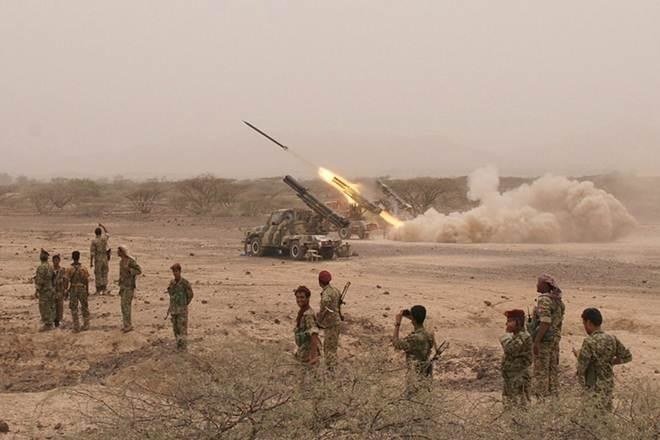
from Saudi Arabia https://ift.tt/2SCnNeo
Saudi Islamic Ministry reopens 17 mosques after sanitization
RIYADH: The Ministry of Islamic Affairs, Dawah, and Guidance has reopened 17 mosques that temporarily closed for cleaning after COVID-19 cases were detected among worshippers.
Coronavirus infections have led to 1,419 mosques in the Kingdom being forced to close in the past 112 days. All were reopened after sanitization measures were completed.
The ministry said on Saturday that seven mosques were reopened in Riyadh, four in the Northern Borders, three in Madinah, two in the Eastern Province and one in Jazan.
It added that cleaning measures were carried out for the safety of worshippers.
The ministry urged visitors and mosque employees to follow precautionary measures, including wearing face masks, using personal prayer mats and maintaining social distancing protocols.
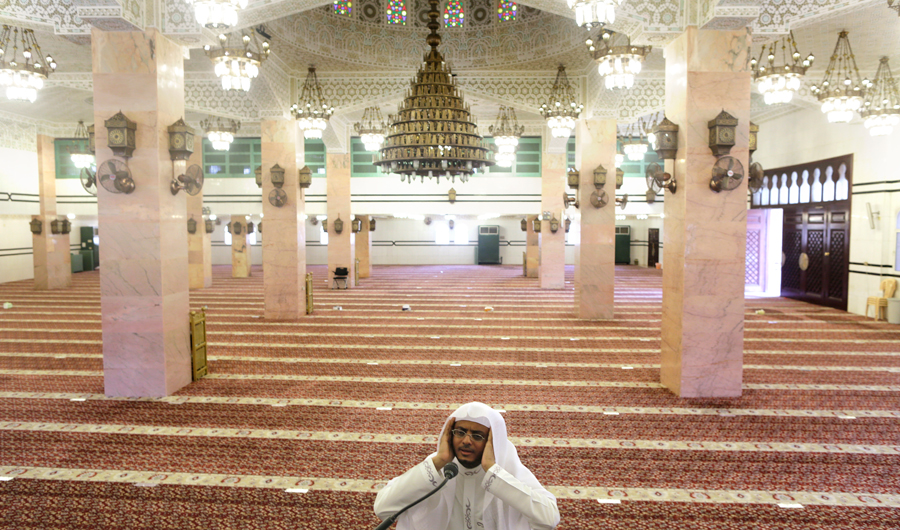
from Saudi Arabia https://ift.tt/2RVozmL
Saudi Arabia raises awareness on World MS Day
JEDDAH: The Kingdom is joining other countries on World MS (Multiple Sclerosis) Day in promoting awareness-raising and educational programs.
The chronic autoimmune disease mainly affects the central nervous system, resulting in a range of symptoms that vary in intensity from one person to another.
There are three types of MS: Relapsing-Remitting MS (RRMS), Secondary-Progressive MS (SPMS) and Primary-Progressive MS (PPMS).
The Ministry of Health aims to raise awareness about the disease and provide the best services to treat it in the Kingdom’s hospitals, particularly as the disease is known to be the most common neurological disorder among youth.
MS affect different parts of the central nervous system, including the spinal cord and nerves.
The ministry said that MS can be diagnosed based on symptoms, linking them to when and how they happen, assessing the patient’s condition, reviewing their history and conducting clinical tests, and by using assessments such as blood tests, spinal taps (to detect any abnormal changes) and magnetic resonance imaging (MRI).
World MS Day is marked on May 30 every year and aims to address the social barriers and stigma that may result in loneliness and isolation in people suffering from it, to build societies that support and care for MS patients and to enhance MS patients’ self-care and healthy life.
MS causes damage in the protective sheath (myelin) that covers nerve fibers, leading to communication problems between the brain and the rest of the body. Its symptoms appear suddenly and vary in intensity based on the affected part of the body and degree of injury.
Patients experience numbness or tingling in their limbs, a lack of coordination, weakness or spasm in the muscles and blurry or double vision or color-vision deficit. Other symptoms include fatigue, slurred speech, memory problems and inability to make decisions, problems with bladder and bowel function, forgetfulness and loss of concentration, depression and epilepsy.
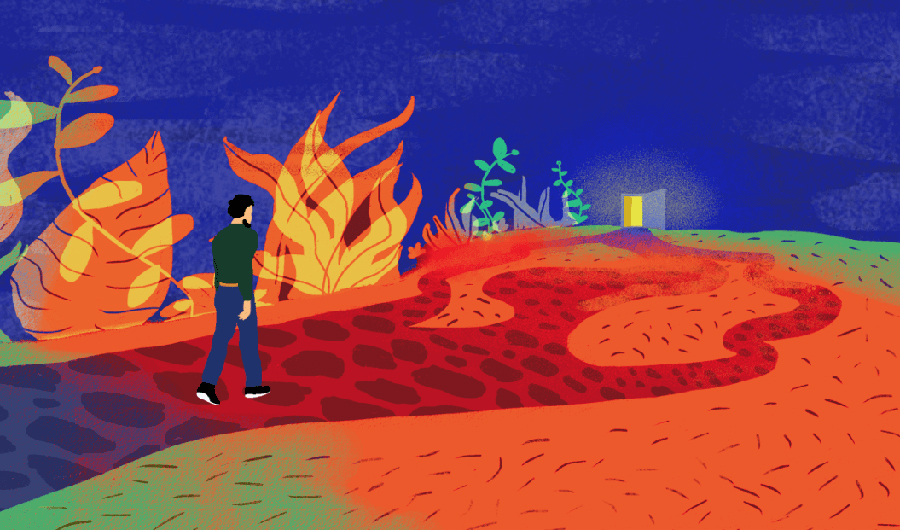
from Saudi Arabia https://ift.tt/34sq0vN
Saudi Arabia’s Diriyah authority stages folk dance contest
JEDDAH: The Diriyah Gate Development Authority (DGDA) has launched the second national Ardha dance competition as part of the authority’s endeavors to promote the ancient art form.
Ardha is on UNESCO’s Intangible Cultural Heritage list and DGDA stages the event so that young Saudis can train for and compete in a dance and poetry competition to celebrate the traditional folk dance.
During the Ardha, a poet and dancers wield swords or canes accompanied by drums — traditionally enacted to send soldiers off to battle and provide them with the determination and support they needed. Today, it is performed at weddings, national and cultural events and celebrations.
The initiative has two stages; the first includes providing training courses taught by the best performers for those registered to learn the arts of the Saudi Ardha. The second stage is to organize a competition for those who qualify in courses held during the first phase.
There will be four rounds this year, each with five participants who need to pass the sessions at the final round in line with standards — including those relating to uniform, sword and drums — set by the arbitration committee.
Registration for the first round is from May 27 to June 2 and training sessions will be held from June 3 to June 4. Registration for the second round will be from July 1 to July 22 and training will be from Aug. 6 to Aug. 7.
Registration for the third round is from Sept. 5 to Sept. 9 and training will be from Sept. 17 to Sept. 18.
Registration for the fourth phase will be from Oct. 5 to Oct. 12 and training is planned for Oct. 22 to Oct. 23.
The final festival will be held on Nov. 25 to award the winners who have been selected to take part in a final performance competition.
The initiative will be held in the historic Al-Turaif district in Diriyah, mainly at the Palace of Thunayan bin Saud, one of the most important historical sites in the district, with the aim of consolidating the history and culture of Diriyah, the land of kings and heroes, the jewel of the Kingdom and the cradle of the first Saudi state.
The Diriyah Gate Development Authority held the first edition of the initiative in 2019 at the Palace of Prince Thunayan bin Saud in the historic Al-Turaif neighborhood, where the authority’s CEO, Jerry Inzerillo, honored six winners out of 100 participants in the first phase after they had passed the training stages and participated in the competition.
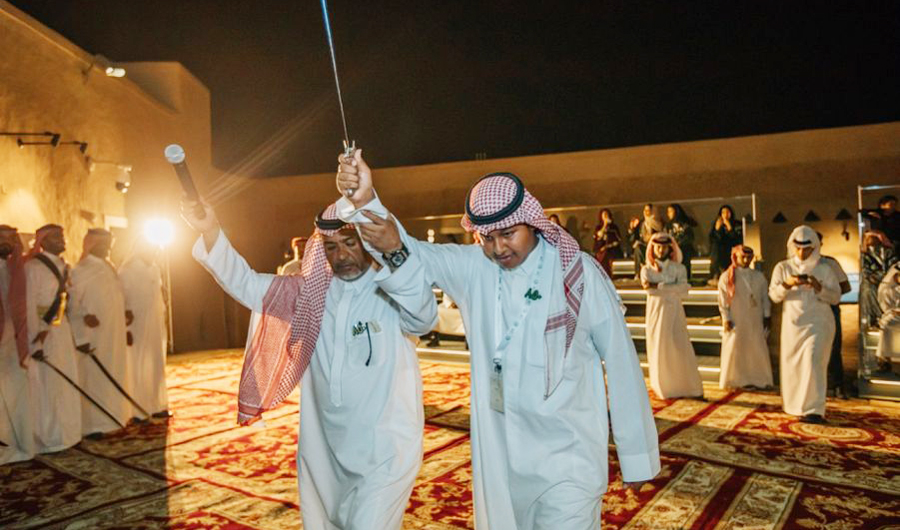
from Saudi Arabia https://ift.tt/3i38G8l
Saudi Arabia creates a buzz with support for honey farms
JEDDAH: Honey, an essential part of the breakfast ritual for many Saudis, is one of the most popular products from the Kingdom’s southern highlands.
For hundreds of years, the mountains of Asir have produced some of the finest varieties of honey.
The mountains are known for their climatic and geographical diversity, with thousands of trees and flowering shrubs providing an ideal environment for nature’s cultivators, bees.
The Sarat Asir mountains are ideal for beekeeping in the Saudi summers, due to the precipitation and moderate weather.
In winter, beekeepers move their hives from the mountaintops to the Tihama plains in order to achieve ecological balance and protect bees from harsh conditions.
Bees can also produce larger quantities of honey due to the availability of honey plants and trees, such as the sidr, sumra, talh, salm, darm, sharm and shouka.
Honey production is gaining extra attention from the government, which has launched several projects to encourage beekeeping.
The projects hope to train Saudi youth to pursue beekeeping as part of a campaign to promote the culture of beekeeping in the Kingdom in line with the Kingdom’s Vision 2030 plan to diversify the labor market.
Realizing the importance of beekeeping and honey production in achieving self-sufficiency, King Khalid University in Asir has set up a special research unit on bees and honey production, which will also help to create jobs for Saudi youth.
The Bees and Honey Production Research Unit has launched several programs and initiatives, including the “Distinctive Trademark” scheme with the beekeeping industry.
It has also begun marketing bee products and the region’s uniqueness in having rare types of high-quality honey in a bid to counter the sale of inferior products, one of the main challenges facing beekeepers and national marketers.
The unit’s laboratories test the quality of the honey and other bee products. A laboratory equipped with an incubator where bees can stay until they are examined also carries out diagnosis of bee diseases.
Microscopes and a special microscopic imaging unit are used to photograph pathogens and diagnose illnesses.
Asir is witnessing remarkable cooperation between authorities specialized in beekeeping, such as the Ministry of Environment, Water and Agriculture, the Cooperative Society for Beekeepers, the Bee Research Unit and Saudi Aramco, to support beekeepers and promote the culture of beekeeping among Saudi youth.
Methods of beekeeping and honey production vary between hobby and commercial purposes. Some beekeepers create special hives in backyards, parks, near their homes or on farms, and prefer calm bee strains that can adapt to the space and flowering plants in the surrounding area.
Saudi Arabia’s growing need will encourage beekeepers and farmers to provide high-quality products for the local market.
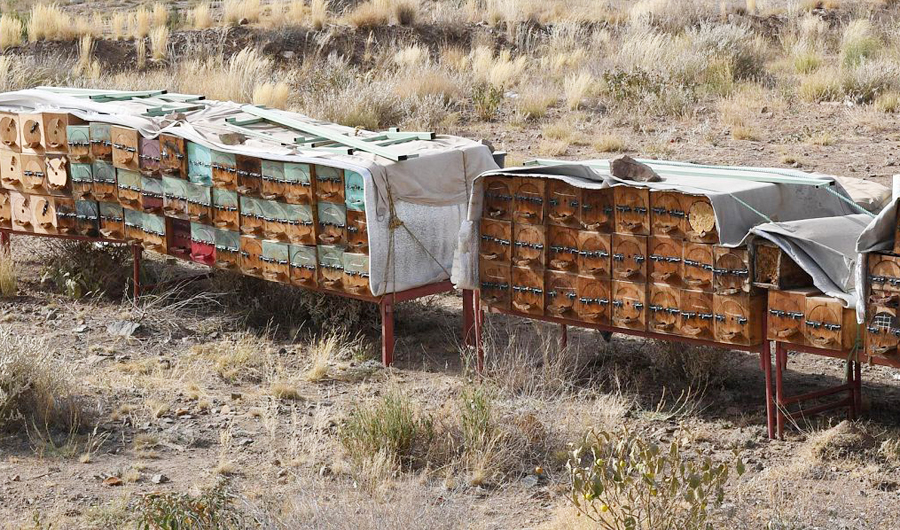
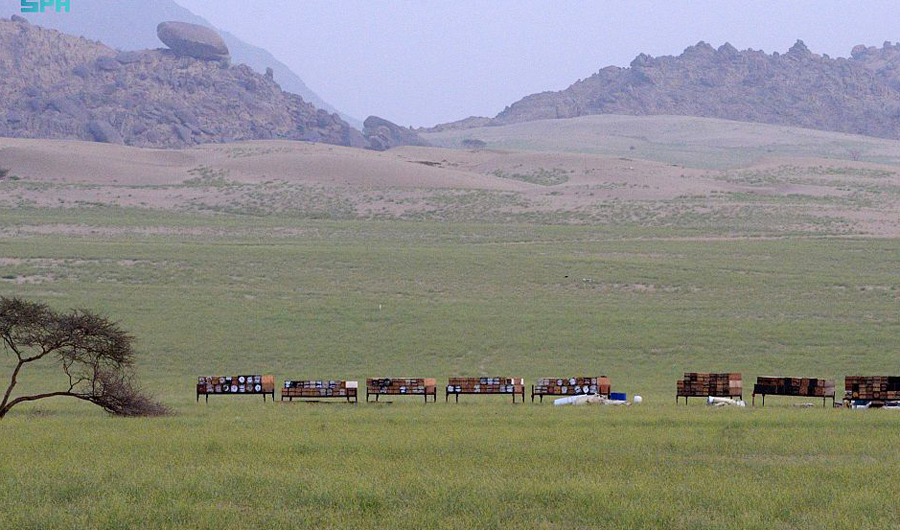
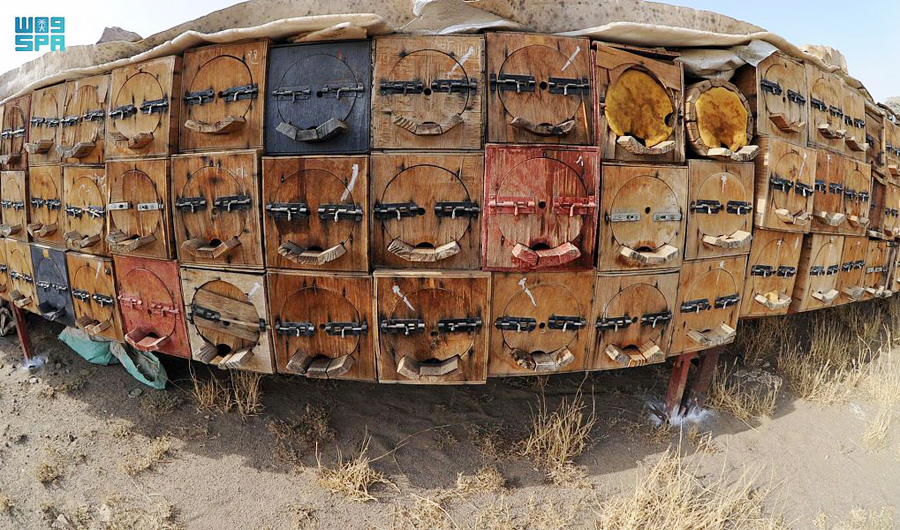
from Saudi Arabia https://ift.tt/2RP4ZJ0
KSrelief continues medical program in Senegal
DAKAR, Senegal: The King Salman Humanitarian Aid and Relief Center (KSrelief) continued its volunteer medical program at Dakar’s Hospital General De Grand Yoff in collaboration with the Muslim World League, the Saudi Press Agency reported.
The KSrelief team carried out 16 cardiac catheterization operations on children, with the number of operations on children from low-income families reaching 27 since the program started.
These services, provided by the Kingdom through KSrelief, aim to treat patients with heart diseases and provide them with the necessary medical care.
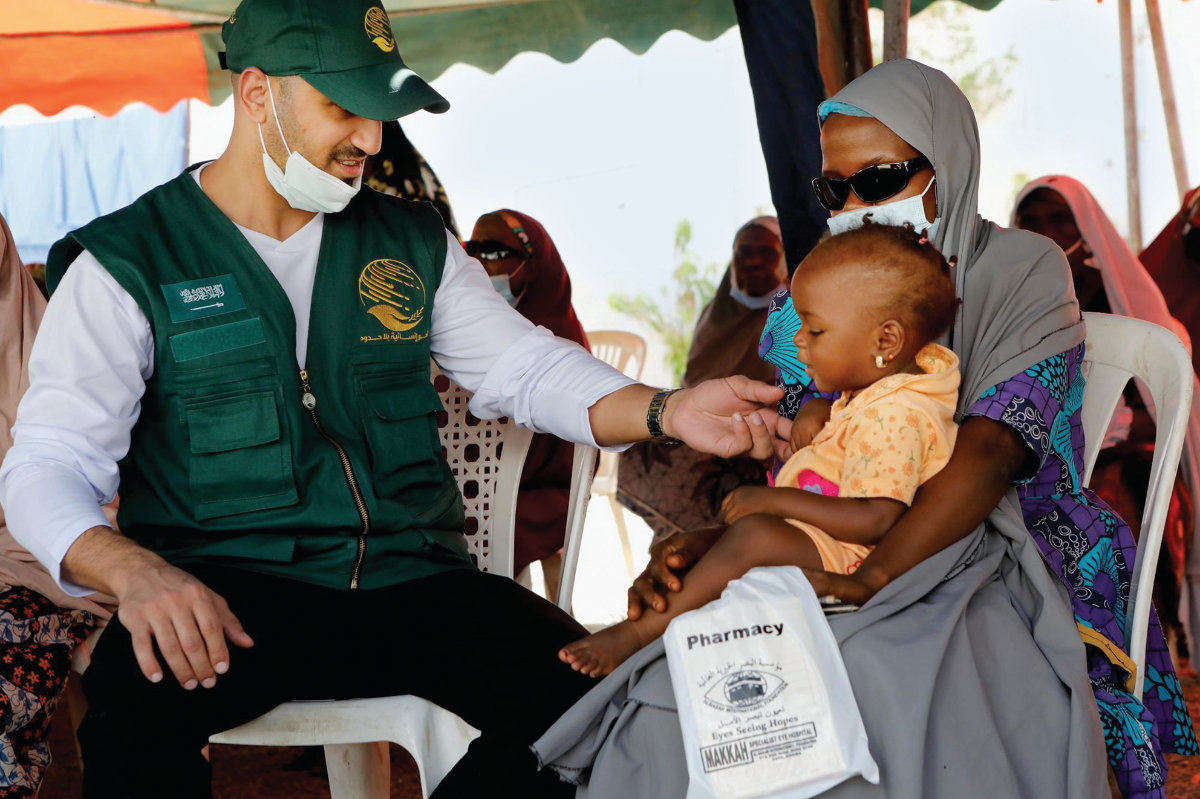
from Saudi Arabia https://ift.tt/3wOiIP7




